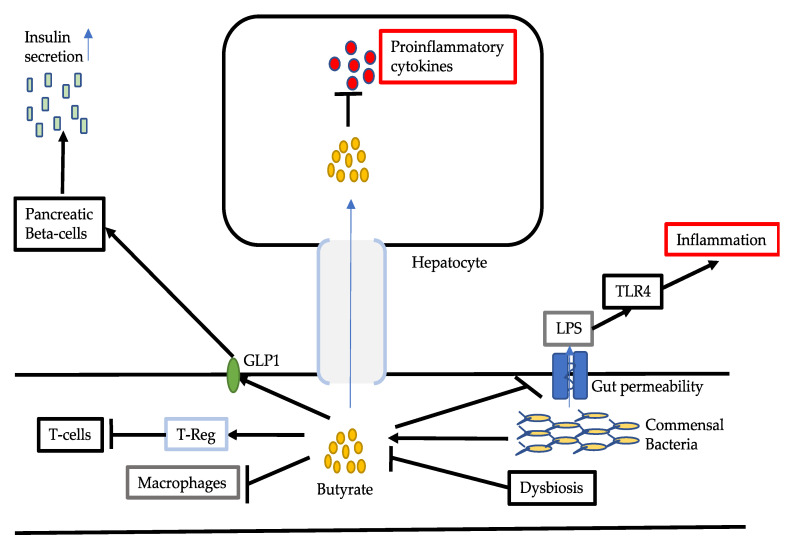Figure 2.
Butyrate in NAFLD. In NAFLD, dysbiosis reduces the levels of butyrate, which is produced by commensal bacteria. Butyrate can reduce intestinal inflammation by activating T-Reg cells, which in turn inhibit T cells. Butyrate also inhibits pro-inflammatory macrophages directly. Through increasing gut barrier, butyrate decreases the entrance of LPS into the blood circulation, thus reduced TLR4-mediated inflammation. By promoting GLP-1 secretion, butyrate stimulates beta-cell to secret insulin. In the liver, butyrate has direct anti-inflammatory effect to reduce pro-inflammatory cytokines. Abbreviations: T-Reg cells, regulatory T-cells; LPS, lipopolysaccharides; TLR4, toll-like receptor 4; GLP-1, glucagon-like peptide-1.

